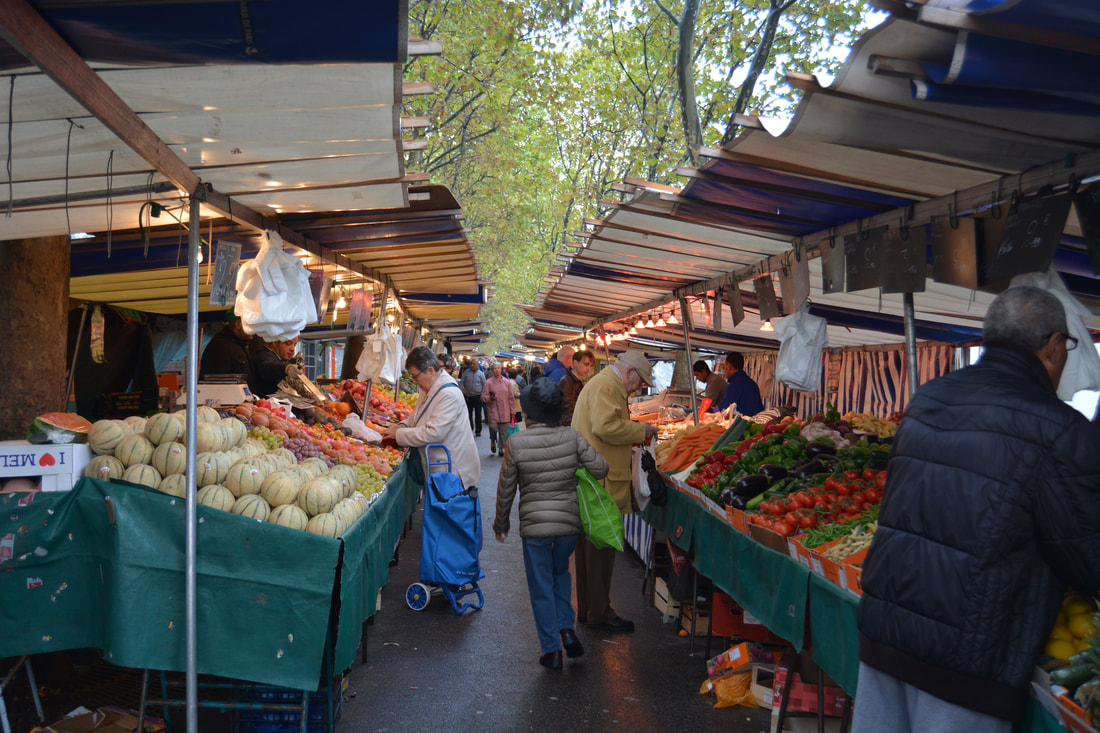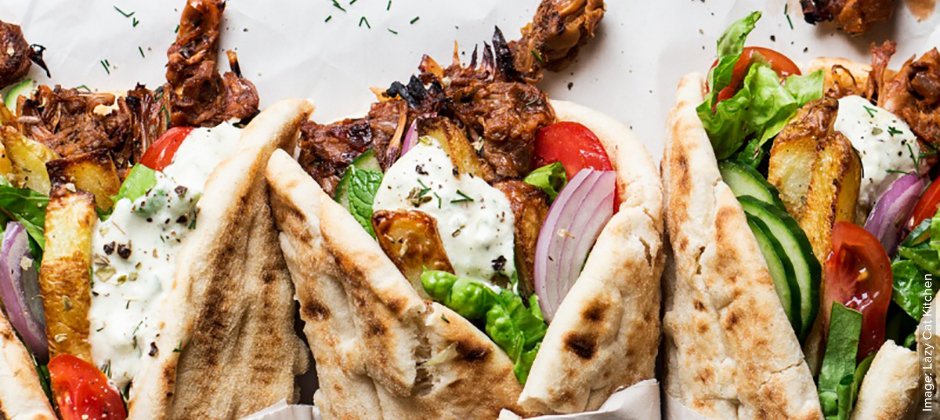- Home
- Process Worldview
- Community
- Art and Music
- Whitehead and Process Thinking
- Podcasts
- Spirituality
- Ecological Civilization
- Education
- Contact
- Social Justice
- Science
- Animals
- Sacred Poems
- Whitehead Videos
- Index of All Titles
- Practicing Process Thought
- Process Spirituality: A Spiritual Alphabet
- Recent Posts
The Earth's Desire by Thomas Berry
Earth's Desire by Thomas Berry
To be seen in her loveliness
To be tasted in her delicious fruits
To be listenered to in her teaching
To be endured in the severity of her discipline
To be experienced as that maternal source from whence we came
The final destiny to which we return.
To be seen in her loveliness
To be tasted in her delicious fruits
To be listenered to in her teaching
To be endured in the severity of her discipline
To be experienced as that maternal source from whence we came
The final destiny to which we return.
Interfaith Meals
for a Healthy Planet
a process perspective
Jay McDaniel with help from Laela Rosen
If you want to help the earth, watch the video at the bottom of this page. It lasts twenty minutes and every second is a goldmine of information. Mark Bittman, the Food Editor of the New York Times until 2015, traces the history of food in the United States in the 20th century, explains the effects unhealthy eating on our mental health and the environment, and offers what those of us in the Jewish tradition call a mitzvah: a commandment.
His mitvah is: Eat much less meat if you eat any at all; avoid junk food at all costs; and have yourself one heck of a good time enjoying plant-centered diets that make life interesting, creative, compassionate, and fun.
He is not a vegetarian, and we at Open Horizons find special wisdom in those who have chosen the vegetarian path. But in his advocacy of a dramatic reduction in meat consumption, he offers a way forward for those who cannot take a complete step toward vegetarianism, and he makes a powerful case for a sensitive, trans-religious, planet-grateful diet.
Mitzvot from the Planet
In traditional Judaism mitzvot come from God, but in Mark Bittman's talk they comes from our bodies, animals, our communities, and from the earth. Let's call them mitvot from the planet.
For some people the whole idea of a commandment can seem joyless, but in the Jewish tradition is mitzvot is also a kind a grace. It is a guideline, offered from outside the purview of the human ego, which can nourish and engrace a life. It can be received with joy and thanksgiving.
Certainly this is the case with planetary mitzvot. Following them can be quite joyful, because the food can taste so good, its preparation can be so much fun, and it can be shared with others, thus building community, even among strangers.
Traditional Judaism has often highlighted the idea that, in the best of worlds, we will welcome strangers into our midst as guests, feeding them and listening to their stories. Eating in healthy ways, around a round table with no one at the head of the table, and no hierarchy except friendship, is a rather beautiful way to be hospitable to strangers.
Eating as a Trans-Religious Practice
Indeed it is arguable that gardening and eating and preparing food together, in local communities, is one of the most important trans-religious practices that we can undertake, if we want to live convivially with one another in a multi-religious world.
People can agree or disagree on doctrines and moral codes, but they can still eat together, and in the very eating they establish relationships of trust, and sometimes even joy, which become springboards for mutual care.
At least this is what we process theologians believe. We do not think that mutual care and enrichment require agreement. People can believe very different things, but their differing beliefs need not be sources of conflict, because they have developed relationships of trust which include but also transcend the differences. Sharing food is one way of establishing these relationships, and in the sharing possibilities emerge for what the leading process theologian of our time -- John B. Cobb, Jr. -- calls creative transformation
Creative Transformation in Third Spaces
Creative Transformation is what happens when people from different social locations -- cultural, religious, philosophical, political -- create third spaces: that is, spaces in which they are free to interact with one another in mutually respectful ways, learning from one another while simultaneously being comfortable in their identities. As they learn from one another in a spirit of creative transformation, they can be deepened and widened in their already existing identities.
For example, as Christians and Buddhists engaged in dialogue in the context of third spaces, the Christian may internalize aspects of Buddhism which enable her to share in the journey of Jesus even more deeply; and the Buddhist may internalize aspects of Christianity which enable him to practice the Dharma ever more widely. And as if they discover irreconcilable differences in philosophy, they can accept and even take delight in the differences, as long as no one has harmed. All this happens in the third spaces.
The third spaces transcend the spaces to which they belong. They are, as it were, liminal places where, for a time, they are free to grow in relationship with one another. Third spaces resemble the parallel and cooperative play that children undertake when young, and third spaces do indeed have a playful side.
Eating and preparing food can be the material context for third spaces, and in these spaces -- however long they last -- creative transformation can occur.
Eating and Identity
Of course in many religious traditions food already plays a tremendously important role. It forms ties to the community, bonds in which strangers and relatives alike can rejoice. Food traditions build community among practitioners within a given tradition, but also separate them from others, within and outside the tradition, who do not share the traditions. The separation is not always problematic. Sometimes people need to form identities in the face of oppressive powers, and the food traditions become means of identity-formation.
But the kinds of eating to which Mark Bittman points offer the possibility that people from different religious traditions, and people without any religious affiliation at all, can engage in forms of delightful eating and food preparation which are "spiritual" in the sense that they offer people an opportunity for enjoying harmony within and among themselves, quite apart from questions of more specific identification.
Harmony is a Religion, Too
Student of the world's cultural traditions know that, in East Asia, the ideal of harmony is the highest of ideals. While Abrahamic-style monotheisms did not develop in East Asia, the East Asians themselves developed a different kind of religious sensibility, focused on harmony in relationships rather than trust in a higher divine power. Confucianism focused on harmony among people and Taoism on harmony with nature.
Scholars of religion sometimes propose that, in East Asia, harmony is indeed the religion one finds. It is a religion which emphasizes felt relationships in this world, rather than felt relationships with another world. Perhaps this is one reason why, in Chinese culture, food and food traditions play such an important role. Food is indeed religious, not in the sense of pointing toward God, but in the sense of fostering harmony.
Inasmuch as food fosters harmony, then the sharing of food is itself a religious experience: a way of experience sacrality within conviviality, especially if the food and sharing are enjoyed in a mindful and conscious way.
Participating in the Sacred
Mark Bittman's talk offers the idea that, today, many of us in different parts of the world can learn from East Asian emphases on harmony.
There is or can be something deeply sacred in food preparation and food sharing, especially if the food is healthy and simultaneously adds to the well-being of the planet. Here sacred means beautiful, precious, and important. It means holy ordinary and wholly ordinary.
In finding the sacred in the holy and wholly ordinary, a certain planetary religion surfaces. The mitzvot of the planet and the joys of harmony come together. The god of this planetary religion is not jealous. We do not need to leave our religious or non-religious identities behind in order to share food and develop relationships of trust. The god of this planetary religion lies in the relationships themselves and in the creative transformation that can emerge from them.
Creative Transformation
And if there truly is a God who loves the world, where is God to be found in all of this? Those of us influenced by process theology will see the spirit of God in the relationships and in the creative transformation.
His mitvah is: Eat much less meat if you eat any at all; avoid junk food at all costs; and have yourself one heck of a good time enjoying plant-centered diets that make life interesting, creative, compassionate, and fun.
He is not a vegetarian, and we at Open Horizons find special wisdom in those who have chosen the vegetarian path. But in his advocacy of a dramatic reduction in meat consumption, he offers a way forward for those who cannot take a complete step toward vegetarianism, and he makes a powerful case for a sensitive, trans-religious, planet-grateful diet.
Mitzvot from the Planet
In traditional Judaism mitzvot come from God, but in Mark Bittman's talk they comes from our bodies, animals, our communities, and from the earth. Let's call them mitvot from the planet.
For some people the whole idea of a commandment can seem joyless, but in the Jewish tradition is mitzvot is also a kind a grace. It is a guideline, offered from outside the purview of the human ego, which can nourish and engrace a life. It can be received with joy and thanksgiving.
Certainly this is the case with planetary mitzvot. Following them can be quite joyful, because the food can taste so good, its preparation can be so much fun, and it can be shared with others, thus building community, even among strangers.
Traditional Judaism has often highlighted the idea that, in the best of worlds, we will welcome strangers into our midst as guests, feeding them and listening to their stories. Eating in healthy ways, around a round table with no one at the head of the table, and no hierarchy except friendship, is a rather beautiful way to be hospitable to strangers.
Eating as a Trans-Religious Practice
Indeed it is arguable that gardening and eating and preparing food together, in local communities, is one of the most important trans-religious practices that we can undertake, if we want to live convivially with one another in a multi-religious world.
People can agree or disagree on doctrines and moral codes, but they can still eat together, and in the very eating they establish relationships of trust, and sometimes even joy, which become springboards for mutual care.
At least this is what we process theologians believe. We do not think that mutual care and enrichment require agreement. People can believe very different things, but their differing beliefs need not be sources of conflict, because they have developed relationships of trust which include but also transcend the differences. Sharing food is one way of establishing these relationships, and in the sharing possibilities emerge for what the leading process theologian of our time -- John B. Cobb, Jr. -- calls creative transformation
Creative Transformation in Third Spaces
Creative Transformation is what happens when people from different social locations -- cultural, religious, philosophical, political -- create third spaces: that is, spaces in which they are free to interact with one another in mutually respectful ways, learning from one another while simultaneously being comfortable in their identities. As they learn from one another in a spirit of creative transformation, they can be deepened and widened in their already existing identities.
For example, as Christians and Buddhists engaged in dialogue in the context of third spaces, the Christian may internalize aspects of Buddhism which enable her to share in the journey of Jesus even more deeply; and the Buddhist may internalize aspects of Christianity which enable him to practice the Dharma ever more widely. And as if they discover irreconcilable differences in philosophy, they can accept and even take delight in the differences, as long as no one has harmed. All this happens in the third spaces.
The third spaces transcend the spaces to which they belong. They are, as it were, liminal places where, for a time, they are free to grow in relationship with one another. Third spaces resemble the parallel and cooperative play that children undertake when young, and third spaces do indeed have a playful side.
Eating and preparing food can be the material context for third spaces, and in these spaces -- however long they last -- creative transformation can occur.
Eating and Identity
Of course in many religious traditions food already plays a tremendously important role. It forms ties to the community, bonds in which strangers and relatives alike can rejoice. Food traditions build community among practitioners within a given tradition, but also separate them from others, within and outside the tradition, who do not share the traditions. The separation is not always problematic. Sometimes people need to form identities in the face of oppressive powers, and the food traditions become means of identity-formation.
But the kinds of eating to which Mark Bittman points offer the possibility that people from different religious traditions, and people without any religious affiliation at all, can engage in forms of delightful eating and food preparation which are "spiritual" in the sense that they offer people an opportunity for enjoying harmony within and among themselves, quite apart from questions of more specific identification.
Harmony is a Religion, Too
Student of the world's cultural traditions know that, in East Asia, the ideal of harmony is the highest of ideals. While Abrahamic-style monotheisms did not develop in East Asia, the East Asians themselves developed a different kind of religious sensibility, focused on harmony in relationships rather than trust in a higher divine power. Confucianism focused on harmony among people and Taoism on harmony with nature.
Scholars of religion sometimes propose that, in East Asia, harmony is indeed the religion one finds. It is a religion which emphasizes felt relationships in this world, rather than felt relationships with another world. Perhaps this is one reason why, in Chinese culture, food and food traditions play such an important role. Food is indeed religious, not in the sense of pointing toward God, but in the sense of fostering harmony.
Inasmuch as food fosters harmony, then the sharing of food is itself a religious experience: a way of experience sacrality within conviviality, especially if the food and sharing are enjoyed in a mindful and conscious way.
Participating in the Sacred
Mark Bittman's talk offers the idea that, today, many of us in different parts of the world can learn from East Asian emphases on harmony.
There is or can be something deeply sacred in food preparation and food sharing, especially if the food is healthy and simultaneously adds to the well-being of the planet. Here sacred means beautiful, precious, and important. It means holy ordinary and wholly ordinary.
In finding the sacred in the holy and wholly ordinary, a certain planetary religion surfaces. The mitzvot of the planet and the joys of harmony come together. The god of this planetary religion is not jealous. We do not need to leave our religious or non-religious identities behind in order to share food and develop relationships of trust. The god of this planetary religion lies in the relationships themselves and in the creative transformation that can emerge from them.
Creative Transformation
And if there truly is a God who loves the world, where is God to be found in all of this? Those of us influenced by process theology will see the spirit of God in the relationships and in the creative transformation.
 Image: Susannah Stubbs, Artist in Residence, Open Horizons
Image: Susannah Stubbs, Artist in Residence, Open Horizons
The spirit of God is a luring presence within the world. It is in plants and animals as their own innermost will to survive with satisfaction relative to the situation at hand. And it is in human beings as our own innermost will to enter into creative and loving relationships with one another and the surrounding world. It is within us as what the Jewish tradition might call the lure of shalom.
Shalom is not simply the absence of violence, it is the fulness of life as enjoyed in relationship. It is very much like what the East Asian traditions call harmony. When shalom is realized on our planet, a part of God becomes present in the world in a unique way. Relationships of shalom become windows to the divine and the divine become present in the shalom itself. We see God in the shalom.
Eating together, in healthy and mutally enhancing ways, is a place where God is seen and, yes, tasted. It is a form of what Christians might call holy communion. As a Christian I myself see it that way. But others might simply call it fun. This is fine. There's a lot of God in fun, too.
Saying Grace
Of course these ways of speaking might seem problematic to those who are concerned with divine transcendence. For one thing, there is a lot of unhealthy eating in our planet that seems, at the time, fun. And much more problematic, there's a lot of mayhem, murder, and madness of the destructive kind. It trivializes God if we simply say "God is in the eating" and leave it at that.
For process theologians, God is more than the spirit of God at work in the world. But not less! There really is God in the eating. But there's also God in the intuition that people have when they say grace before meals: that is, when they fold their hands and say "Dear God, thank you for this food and may we put it to good use by adding love to the world." As they pray, is anyone listening?
The Call to Live Lightly
We process theologians believe that someone is listening. We believe that God is the Mind of the universe: a living receptacle for all the world's joys and sufferings, who responds moment by moment, everywhere at once, by offering possibilities for creativity and wholeness relative to the situation at hand. We human beings and the other creatures on our planet are not outside this mind, we live and move and have our being within the Mind of the universe. What happens in us and to us become part of the Mind's ongoing life and memory. And what happens to other animals also becomes part of the Mind's ongoing life and memory.
The power of the Mind is not that of an engineer who can control what happens in the world, but that of a poet who, moment by moment, inspires us to create beauty out of tragedy and take delight in the ordinary gifts of life. We experience God's power as a call to live lightly on the earth and gently with one another, for the earth's sake and for God's sake.
Divine Pain
As we respond to this calling we add to the very life of God. If we live lightly and gently, this adds beauty to the life of God. It adds pleasure. And if we live callously and destructively, it adds tragedy to the live of God. It add pain.
In the Jewish tradition, Abraham Joshua Heschel once said that images of an angry God are really images of divine pain. This makes much sense to process theologians. We do not think of God as rage-filled, but we do think of God as a reality who feels pain: the pain of people and animals and the pain of missed potential. If we need to say that God is angry about how we eat, we really mean that our eating is a source of pain to our planet and, more deeply, to the mystery at the heart of the universe.
Divine Delight
The obverse of this pain is divine delight. Mark Bittman's talk reminds those of us who believe in God that we can add delight to the very life of God by conscious, thoughtful, delightful eating. The eating becomes a kind of prayer -- an addition to the divine life -- even when undertaken by those who do not believe in God.
Does God taste the food? We process theologians believe that God "feels the feelings" of all living beings and enjoys those feelings. These feelings include our emotions, to be sure, but also simple acts of tasting. The taste is enjoyed by the mystery at the heart of the universe. Yes, God tastes the food, too.
The whole idea of a God who tastes will be troublesome to those for whom pleasure seems like a selfish and self-centered feeling. But for process theologians taste can be a beautiful sense, if guided by a sense of shared enjoyment with others and a sense of love. It is a kind of prayer, too.
Withness of the Body
This prayer is especially beautiful if conjoined with gardening. In another article in this website we offer the proposal that the encouragement of small-scale farming in rural areas, with appropriate technologies that relieve the burden of excessive toil, combined with urban gardening in apartments in cities and on rooftops, is also one of the better hopes of the world. (GO)
One value of gardening is that is offers an opportunity for people to put their hands into soil and experience a sense of conviviality with the earth itself. In this activity people touch the earth, and are also touched by the earth. After all, the earth is living too. It may or may not be alive with consciousness, but it is alive with creative energy, with what the Chinese call qi.
Whitehead speaks of this being touched as the withness of the body. In taste and touch this withness becomes a sacred ritual in its own way. A way of stepping out of the mind into the senses. Touch and taste alike are ways of moving beyond the dualism of mind and body that has so often infected the Western soul and reduced healthy spirituality to a matter of reading, study, and inquiry. To be sure, there is value in reading, study and inquiry, too. They, too, are forms of prayer. But prayer is in the body, too, for those who have eyes to see, ears to hear, hands to feel, feet to dance, and tongues to taste.
Tikkun Olam
The need in our time is to start praying. It begins with an act as simple as choosing what to eat at the next meal, eating slowly, happily, with our without the companionship of others. The act can be enriched by preparing the food in a caring way and, for some, by growing some of the food and supporting others -- small acreage farmers -- who do the same. And it can be further enriched by letting healthy eating become part of a wider lifestyle that is aimed at helping heal a broken world.
Of course this is not enough. For an overall picture of planetary needs today, we hope you will turn to the foundational article in the Planet Beauty section of Open Horizons: John Cobb's Ten Ideas for Saving the Planet The purpose of developing a theology of food is not simply so that we can enjoy delicious meals,; it is so that we can become healers in a broken world, thus fulfilling our human vocation for Tikkun Olan.
Tikkun Olam: תיקון עולם. Repairing the world. That's the phrase Judaism offers the world. It is praying with body and mind and spirit in healing ways. When this is done, the will of God is done on earth as it is in heaven. And when the will of God is done on earth a bit of joy -- of pleasure -- is added to the divine life, too.
In Judaism we speak of releasing sparks from the world so that they can return to God. Sometimes sparks take the form of dramatic, prophetic actions. They are painful to take, and much courage is needed. We find ourselves grateful for prophetic witnesses to justice in our world: those who have the courage to speak truth to power.
But we need not forget to remember that the very pursuit of justice can be joyful, too. Sometimes the sparks take the form of fresh strawberries. As we eat them, sitting around a table with friends, listening and laughing and sharing stories, moments of conviviality emerge which are as beautiful in their way as are the contours of the strawberries themselves. Sparks are released. In our togetherness there is shining that touches eternity, even if only for the duration of the meal.
Shalom is not simply the absence of violence, it is the fulness of life as enjoyed in relationship. It is very much like what the East Asian traditions call harmony. When shalom is realized on our planet, a part of God becomes present in the world in a unique way. Relationships of shalom become windows to the divine and the divine become present in the shalom itself. We see God in the shalom.
Eating together, in healthy and mutally enhancing ways, is a place where God is seen and, yes, tasted. It is a form of what Christians might call holy communion. As a Christian I myself see it that way. But others might simply call it fun. This is fine. There's a lot of God in fun, too.
Saying Grace
Of course these ways of speaking might seem problematic to those who are concerned with divine transcendence. For one thing, there is a lot of unhealthy eating in our planet that seems, at the time, fun. And much more problematic, there's a lot of mayhem, murder, and madness of the destructive kind. It trivializes God if we simply say "God is in the eating" and leave it at that.
For process theologians, God is more than the spirit of God at work in the world. But not less! There really is God in the eating. But there's also God in the intuition that people have when they say grace before meals: that is, when they fold their hands and say "Dear God, thank you for this food and may we put it to good use by adding love to the world." As they pray, is anyone listening?
The Call to Live Lightly
We process theologians believe that someone is listening. We believe that God is the Mind of the universe: a living receptacle for all the world's joys and sufferings, who responds moment by moment, everywhere at once, by offering possibilities for creativity and wholeness relative to the situation at hand. We human beings and the other creatures on our planet are not outside this mind, we live and move and have our being within the Mind of the universe. What happens in us and to us become part of the Mind's ongoing life and memory. And what happens to other animals also becomes part of the Mind's ongoing life and memory.
The power of the Mind is not that of an engineer who can control what happens in the world, but that of a poet who, moment by moment, inspires us to create beauty out of tragedy and take delight in the ordinary gifts of life. We experience God's power as a call to live lightly on the earth and gently with one another, for the earth's sake and for God's sake.
Divine Pain
As we respond to this calling we add to the very life of God. If we live lightly and gently, this adds beauty to the life of God. It adds pleasure. And if we live callously and destructively, it adds tragedy to the live of God. It add pain.
In the Jewish tradition, Abraham Joshua Heschel once said that images of an angry God are really images of divine pain. This makes much sense to process theologians. We do not think of God as rage-filled, but we do think of God as a reality who feels pain: the pain of people and animals and the pain of missed potential. If we need to say that God is angry about how we eat, we really mean that our eating is a source of pain to our planet and, more deeply, to the mystery at the heart of the universe.
Divine Delight
The obverse of this pain is divine delight. Mark Bittman's talk reminds those of us who believe in God that we can add delight to the very life of God by conscious, thoughtful, delightful eating. The eating becomes a kind of prayer -- an addition to the divine life -- even when undertaken by those who do not believe in God.
Does God taste the food? We process theologians believe that God "feels the feelings" of all living beings and enjoys those feelings. These feelings include our emotions, to be sure, but also simple acts of tasting. The taste is enjoyed by the mystery at the heart of the universe. Yes, God tastes the food, too.
The whole idea of a God who tastes will be troublesome to those for whom pleasure seems like a selfish and self-centered feeling. But for process theologians taste can be a beautiful sense, if guided by a sense of shared enjoyment with others and a sense of love. It is a kind of prayer, too.
Withness of the Body
This prayer is especially beautiful if conjoined with gardening. In another article in this website we offer the proposal that the encouragement of small-scale farming in rural areas, with appropriate technologies that relieve the burden of excessive toil, combined with urban gardening in apartments in cities and on rooftops, is also one of the better hopes of the world. (GO)
One value of gardening is that is offers an opportunity for people to put their hands into soil and experience a sense of conviviality with the earth itself. In this activity people touch the earth, and are also touched by the earth. After all, the earth is living too. It may or may not be alive with consciousness, but it is alive with creative energy, with what the Chinese call qi.
Whitehead speaks of this being touched as the withness of the body. In taste and touch this withness becomes a sacred ritual in its own way. A way of stepping out of the mind into the senses. Touch and taste alike are ways of moving beyond the dualism of mind and body that has so often infected the Western soul and reduced healthy spirituality to a matter of reading, study, and inquiry. To be sure, there is value in reading, study and inquiry, too. They, too, are forms of prayer. But prayer is in the body, too, for those who have eyes to see, ears to hear, hands to feel, feet to dance, and tongues to taste.
Tikkun Olam
The need in our time is to start praying. It begins with an act as simple as choosing what to eat at the next meal, eating slowly, happily, with our without the companionship of others. The act can be enriched by preparing the food in a caring way and, for some, by growing some of the food and supporting others -- small acreage farmers -- who do the same. And it can be further enriched by letting healthy eating become part of a wider lifestyle that is aimed at helping heal a broken world.
Of course this is not enough. For an overall picture of planetary needs today, we hope you will turn to the foundational article in the Planet Beauty section of Open Horizons: John Cobb's Ten Ideas for Saving the Planet The purpose of developing a theology of food is not simply so that we can enjoy delicious meals,; it is so that we can become healers in a broken world, thus fulfilling our human vocation for Tikkun Olan.
Tikkun Olam: תיקון עולם. Repairing the world. That's the phrase Judaism offers the world. It is praying with body and mind and spirit in healing ways. When this is done, the will of God is done on earth as it is in heaven. And when the will of God is done on earth a bit of joy -- of pleasure -- is added to the divine life, too.
In Judaism we speak of releasing sparks from the world so that they can return to God. Sometimes sparks take the form of dramatic, prophetic actions. They are painful to take, and much courage is needed. We find ourselves grateful for prophetic witnesses to justice in our world: those who have the courage to speak truth to power.
But we need not forget to remember that the very pursuit of justice can be joyful, too. Sometimes the sparks take the form of fresh strawberries. As we eat them, sitting around a table with friends, listening and laughing and sharing stories, moments of conviviality emerge which are as beautiful in their way as are the contours of the strawberries themselves. Sparks are released. In our togetherness there is shining that touches eternity, even if only for the duration of the meal.







